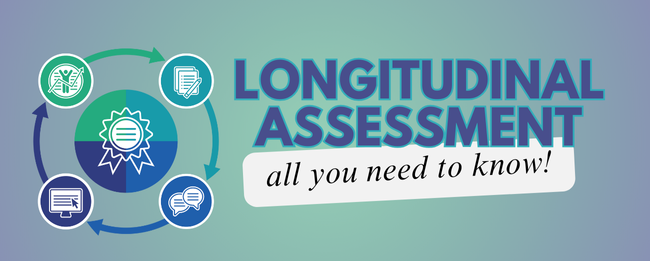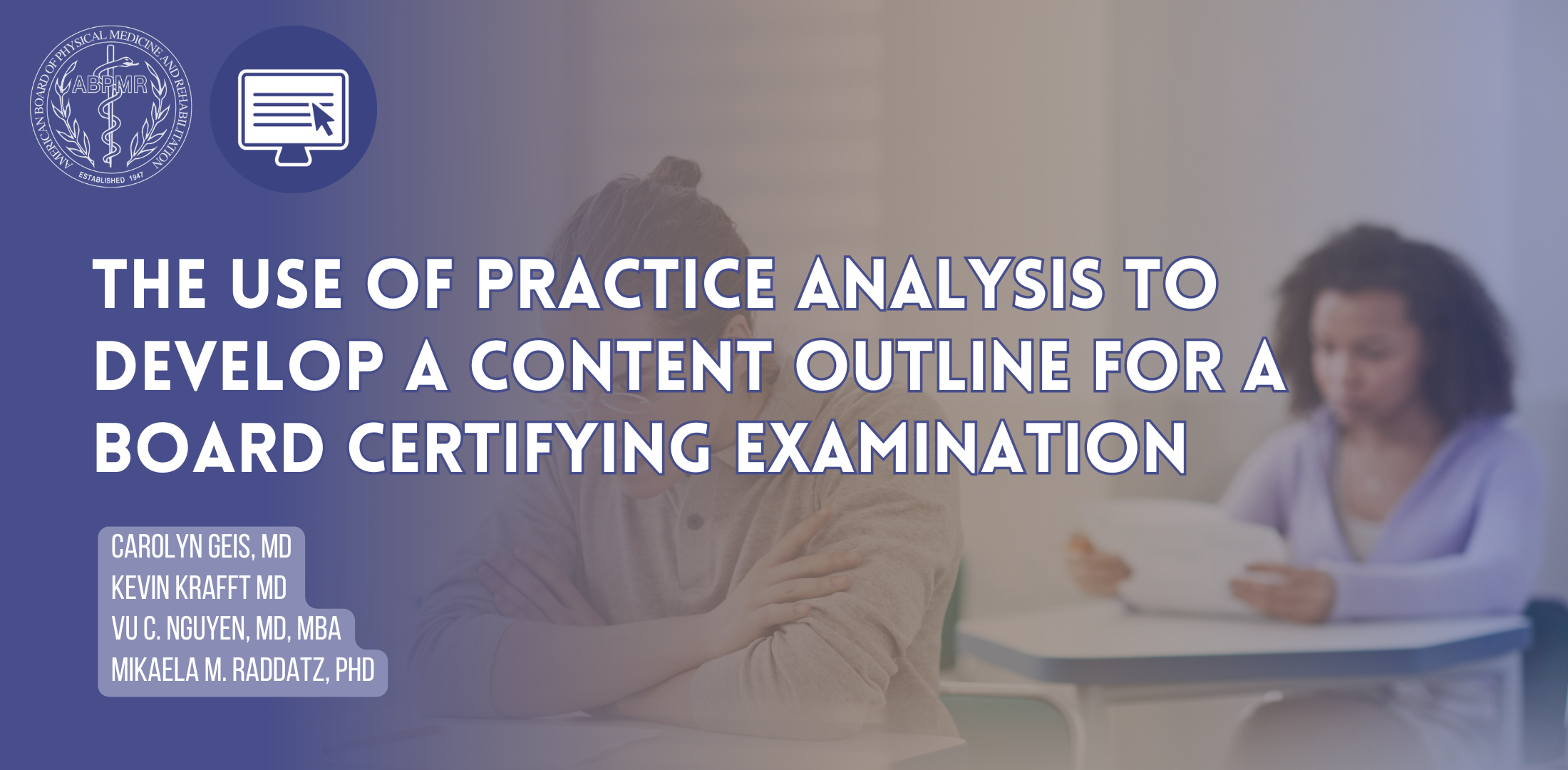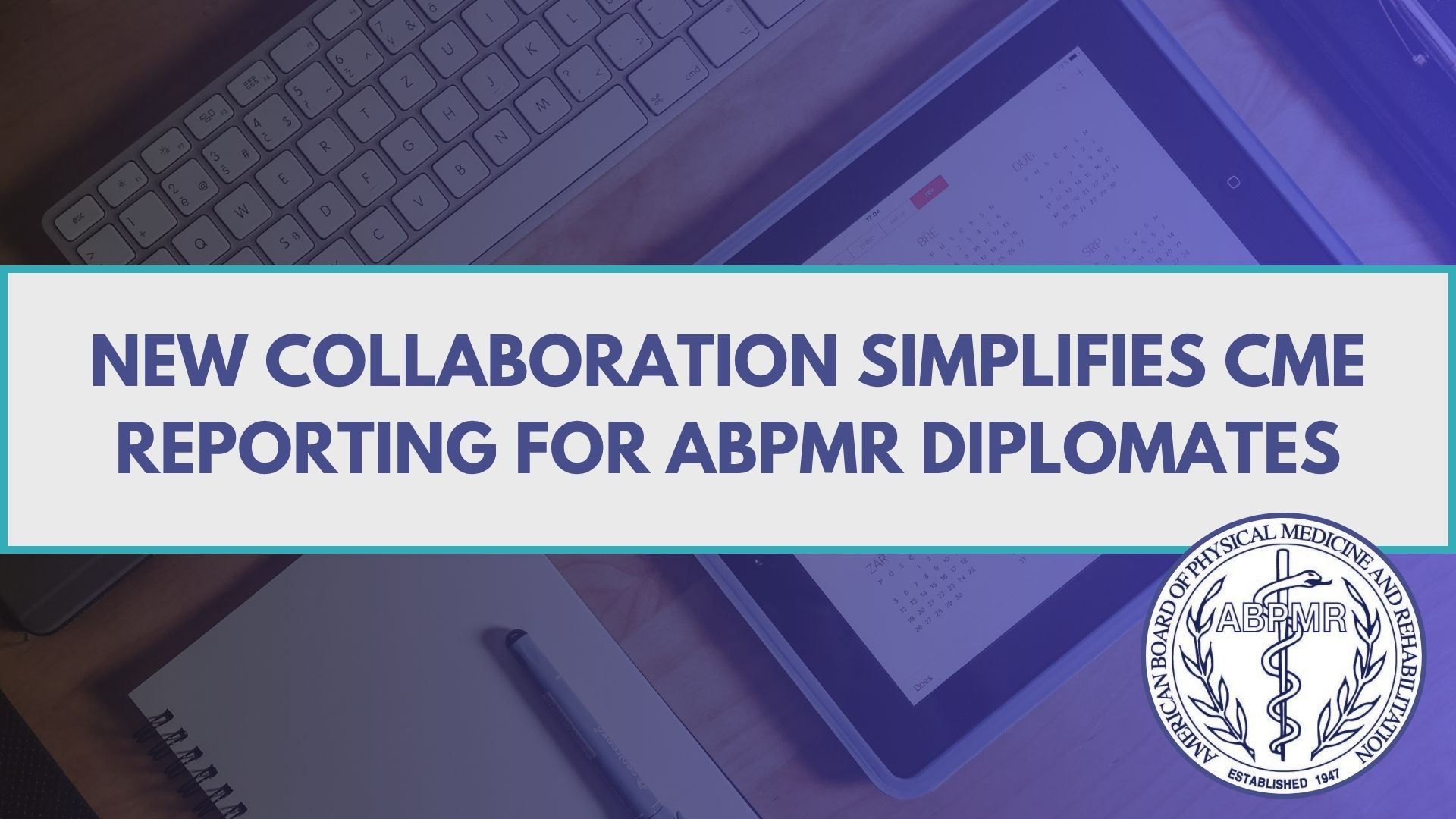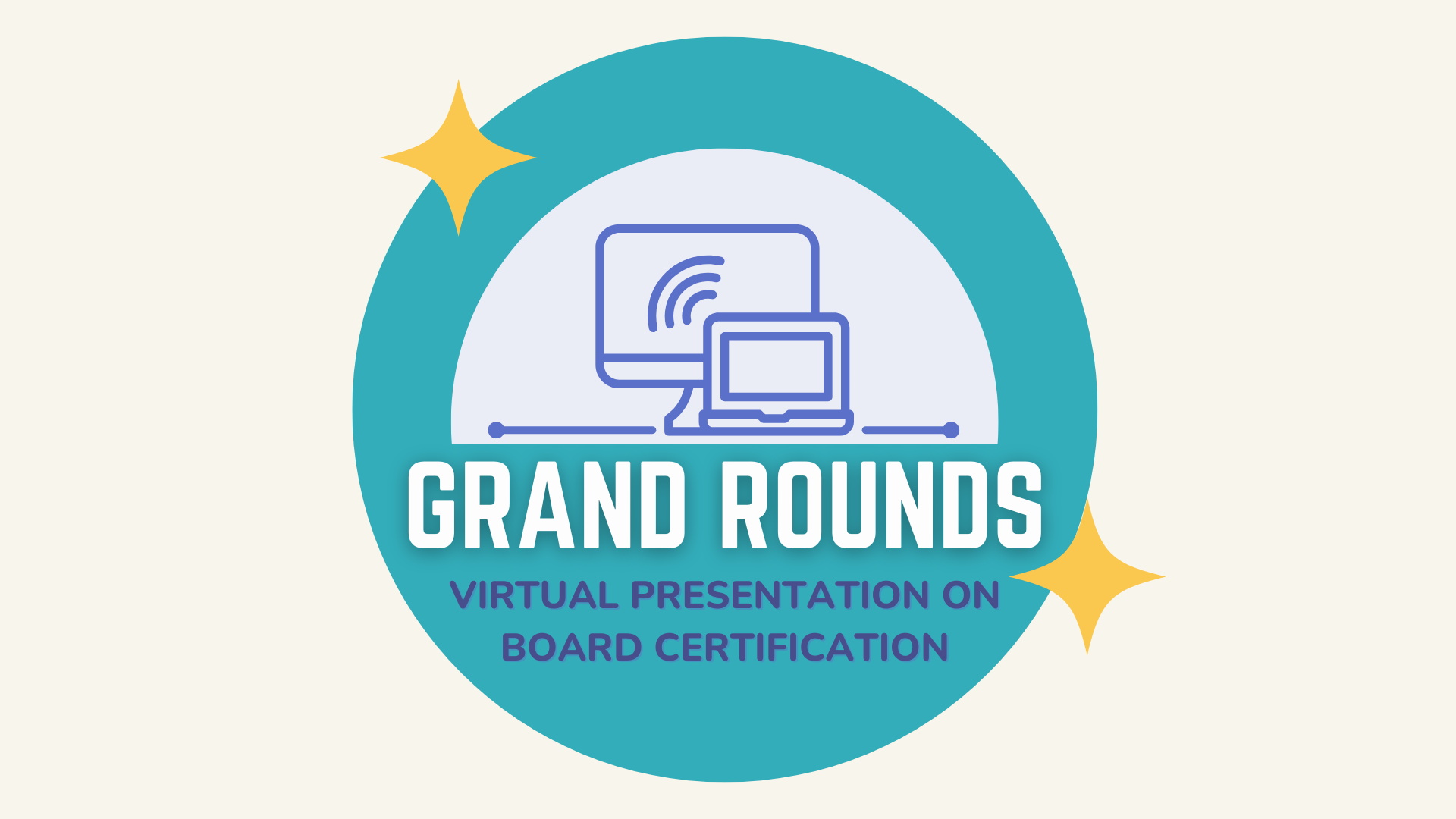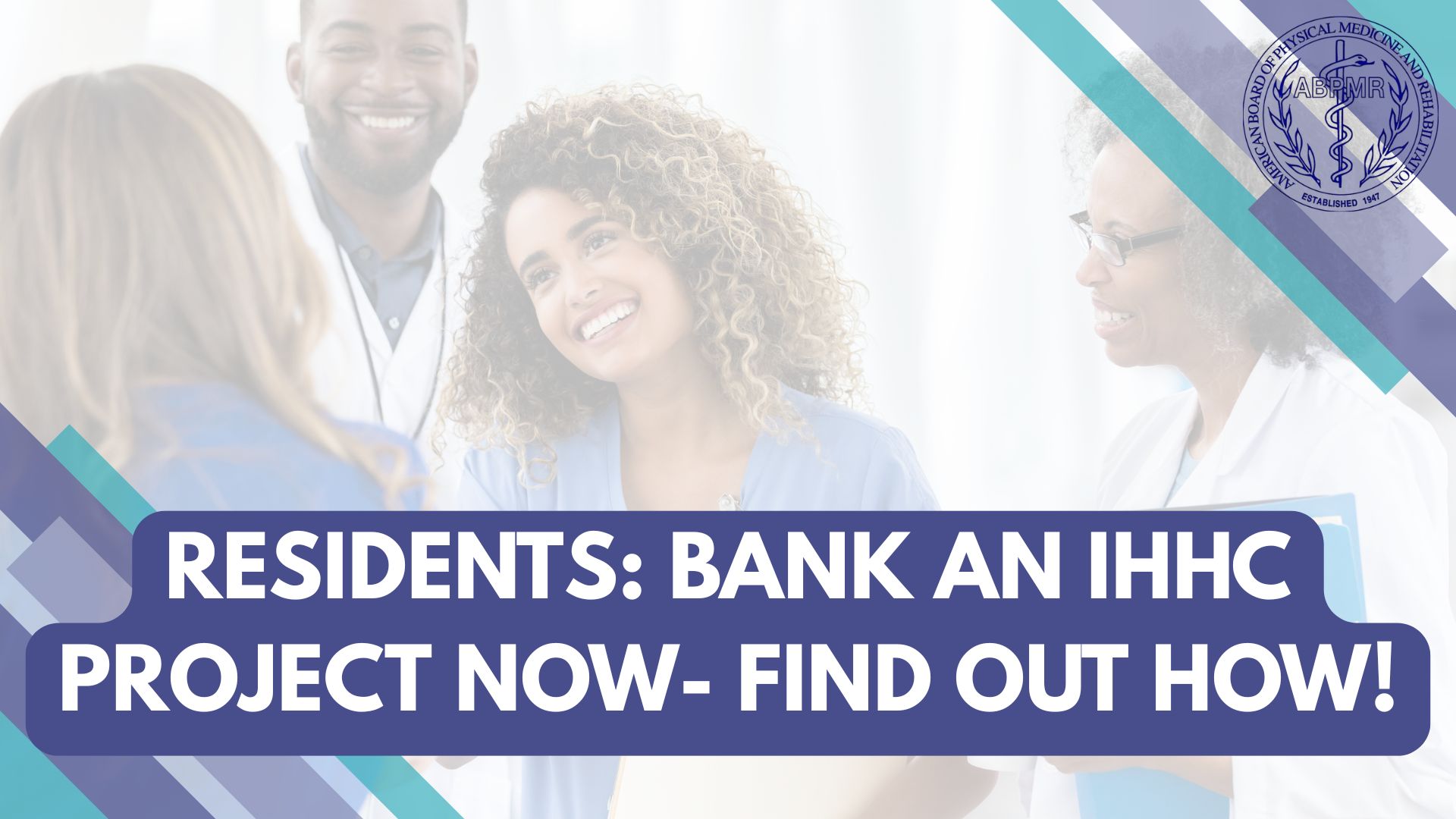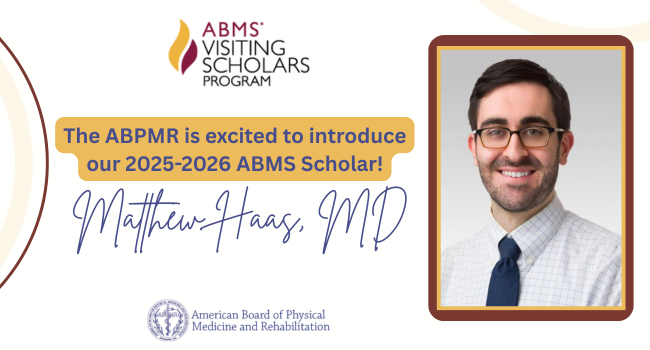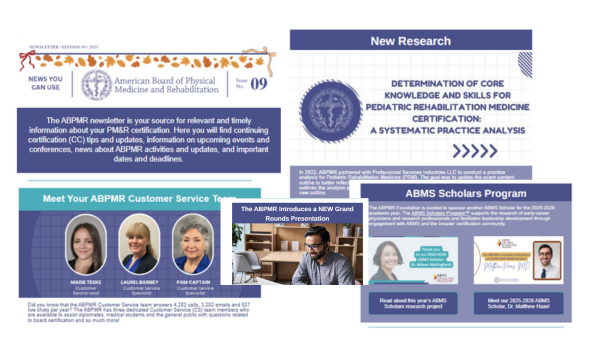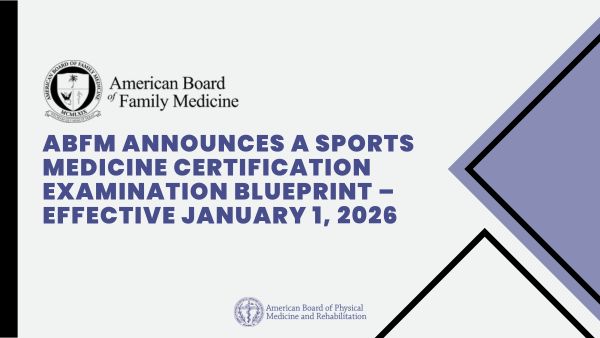All You Need to Know: Longitudinal Assessment
Introducing your central hub for the most up-to-date and essential information related to all things LA!LEARN MORE
Read the full Part I Practice Analysis Research Paper
In 2023, a practice analysis was completed to update the Part I Examination content outline. Now the full research article is available to learn more about the process for developing the outline.LEARN MORE
New Collaboration with ACCME Simplifies CC
ABPMR diplomates no longer need to upload CME certificates for Continuing Certification (CC). Accredited CME providers can now report your credit directly to ACCME, which shares it securely with ABPMR.Learn more here!
ABPMR Introduces a NEW Grand Rounds Presentation
The ABPMR is excited to announce a unique opportunity for residents and diplomates to gain valuable insights into board certification and continuing certification.Learn more here!
Residents: “Bank” An IHHC Project Now – Find out How!
As you move through PM&R residency, you'll need to complete an Improving Health and Health Care (IHHC) project as part of your first Continuing Certification (CC) cycle. To help you prepare, the ABPMR now allows residents to “bank” a qualifying IHHC project during residency and apply it toward their first five-year CC cycle.LEARN MORE
Meet our 2025-2026 ABMS Scholar: Dr. Matthew Haas!
The American Board of Medical Specialties (ABMS) has selected Matthew Haas, MD as the 2025–2026 ABMS Scholars Program™ recipient. Established in 2014, the one-year, part-time program supports early-career physicians and researchers in scholarship and leadership development focusing on initial and continuing board certification. Each Scholar receives a $15,000 financial award.Learn more about Dr. Haas!
Read the 2025 fall edition of the ABPMR newsletter
Your source for relevant and timely information about your PM&R certification.Read it here!
ABFM Sports Medicine Certification Exam Blueprint Updated – Effective January 1, 2026
The American Board of Family Medicine is thrilled to announce a comprehensive update to the Certificate of Added Qualification (CAQ) in Sports Medicine Certification Examination blueprint which is effective January 1, 2026.LEARN MORE
IHHC (QI) Project: Close the Loop: 48-Hour Documentation Challenge
This month our IHHC Project Spotlight was submitted by Tracy Page, MD, MA.Read more here!
For Residents
Your Roadmap to Certification
Welcome to the start of your journey to PM&R certification.
Board certification demonstrates your knowledge, skills, and competence to your employer, your peers, and your patients. Once you reach the end of residency, your certification journey begins. The ABPMR is here to give you a roadmap to certification and beyond.
For Our Diplomates
Making Continuing Certification Matter
The ABPMR Continuing Certification (CC) Program helps you keep your knowledge current, your practice improving, and your clinical skills sharp throughout your career — but it’s not really about you. It’s about your patients. When applied to your practice effectively, CC helps you continue raising the bar of excellence in patient care.
-
Professionalism
Professionalism goes beyond maintaining an active, unrestricted license to practice medicine. It also means prioritizing patient needs, staying current in your field, and holding to the highest ethical standards.
-
Lifelong Learning
Continuing Medical Education (CME) credits are the backbone of the CC Program. By completing about 40 CME credits a year, including 8 Self-Assessment CME credits, you’re ensuring your clinical knowledge is always current.
-
Assessment
Longitudinal assessment is designed to assess knowledge while helping physicians learn and improve over time. Questions may be answered at your own pace and are customizable across five domains.
-
Improving Health and Health Care
Improving Health and Health Care (IHHC) projects offer a chance to demonstrate how you’re continually improving for your patients — and to give you the tools to measure and quantify that improvement. (Tip: This requirement may be more straightforward than you think.)
Certification Matters
Is your doctor certified?
When you need to put your health into a professional’s hands, you want to be confident in your physician’s evaluation, advice, and treatment plan. One of the best ways to be assured you’re getting good care is to choose a doctor who is board certified.
